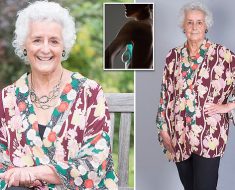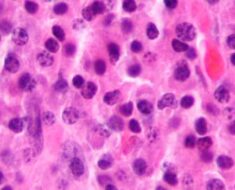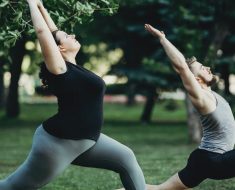Anyone else eagerly anticipating the warmer seasons? The days are longer and sunnier; you’re able to spend more time outside in backyards or at the beach. And, of course, nothing goes with that setting quite like a boozy beverage.
We’re not going to be a total buzzkill and tell you not to drink in the heat, but there are some things you should remember before you sip another Aperol spritz or head to the cooler for another beer. Here, experts share what alcohol does to your body when it’s hot outside and how it can affect your health if you’re not careful.
Alcohol can make you feel warmer than you already are.

If you have a few drinks and suddenly feel a little toasty, you’re not imagining it. “Alcohol is a vasodilator, meaning it widens and dilates your blood vessels,” explained Julia Blank, a family medicine physician at Providence Saint John’s Health Center in Santa Monica. “This makes it easier for body heat to rise to the surface of the skin, and now you’re putting off heat.”
You feel warmer because you have a higher volume of blood that’s coming up to the surface of the skin (this is why you might get flushed after a drink or two). The problem is that it’s also warm outside, which means there’s a higher chance you could overheat if you’re not drinking enough nonalcoholic fluids.
Alcohol dehydrates you in an environment where you’re probably already low on water.

In addition to warming you up, alcohol is a diuretic and strips your body of fluids. “Alcohol causes the kidneys to release more water through urine than we would normally,” said Hallie Zwibel, team physician and director of the Center for Sports Medicine at the New York Institute of Technology in Old Westbury, New York. “So now you’re losing water through sweat [from the heat] and urine, which can make you dehydrated and unable to cool down.”
These side effects are also compounded if you’re drinking and exercising, Zwibel added. Anything from beach volleyball to recreational summer sports (like with your work softball league) can put drinking in the mix either before, during or after your sweat session.
“Even though it might be casual sporting, alcohol can make it hard to perceive the effects of how much you’re exerting yourself and how much fluid you’re losing from the heat,” Zwibel said. “That can make it a tricky environment for your health.”
Add all of this to the fact that you’re probably already experiencing lower-than-normal hydration levels thanks to summer itself. Experts say you need to drink more water in the summer, with some recommending two to four liters a day for active adults. Dehydration can cause side effects like headaches and muscle cramps, but if it’s not remedied, it can lead to more serious things like a heat stroke, Blank added.
The good news? There are ways to drink safely in the heat.

You can have a brew (or two) without paying for it later if you have a few healthy habits. First, be aware that you need to drink way more water than you think.
“People often say have a drink of water for every alcoholic drink, but in reality, you’re urinating out a third more than the amount of alcohol you’re drinking, so replacing a cup of water for an 8-ounce drink is not the same thing,” Blank said. This means you’ll need about two to three glasses of water for every alcoholic drink on hot days.
You’re likely not going to feel like you’re thirsty because you’re drinking, Zwibel said. Your urine will look more diluted than it really is, giving you the illusion that you have enough fluids in your body when you don’t. Zwibel recommended having a glass of water every 30 minutes, which will help continually replenish any fluids lost. Another way to hold on to extra fluid is to eat salt-based foods, Blank added. (Pass the tortilla chips!)
If you are playing sports or exercising and there’s drinking involved at any point, you’ll need something other than water to help you refuel. “Pick a sports drink that has a large amount of carbohydrates in it, because you lose those when you exercise,” Zwibel said. “Some people believe alcohol can serve as this fluid replacement because it has carbs in it, but it’s not enough and it’s also lacking in protein.”
If at any point ― whether you’re drinking alcohol or not ― you start to feel lightheaded, nauseous or confused, get to a shady spot and drink as much water as possible. These are warning signs of a heat stroke, Blank said.

Source: Read Full Article





